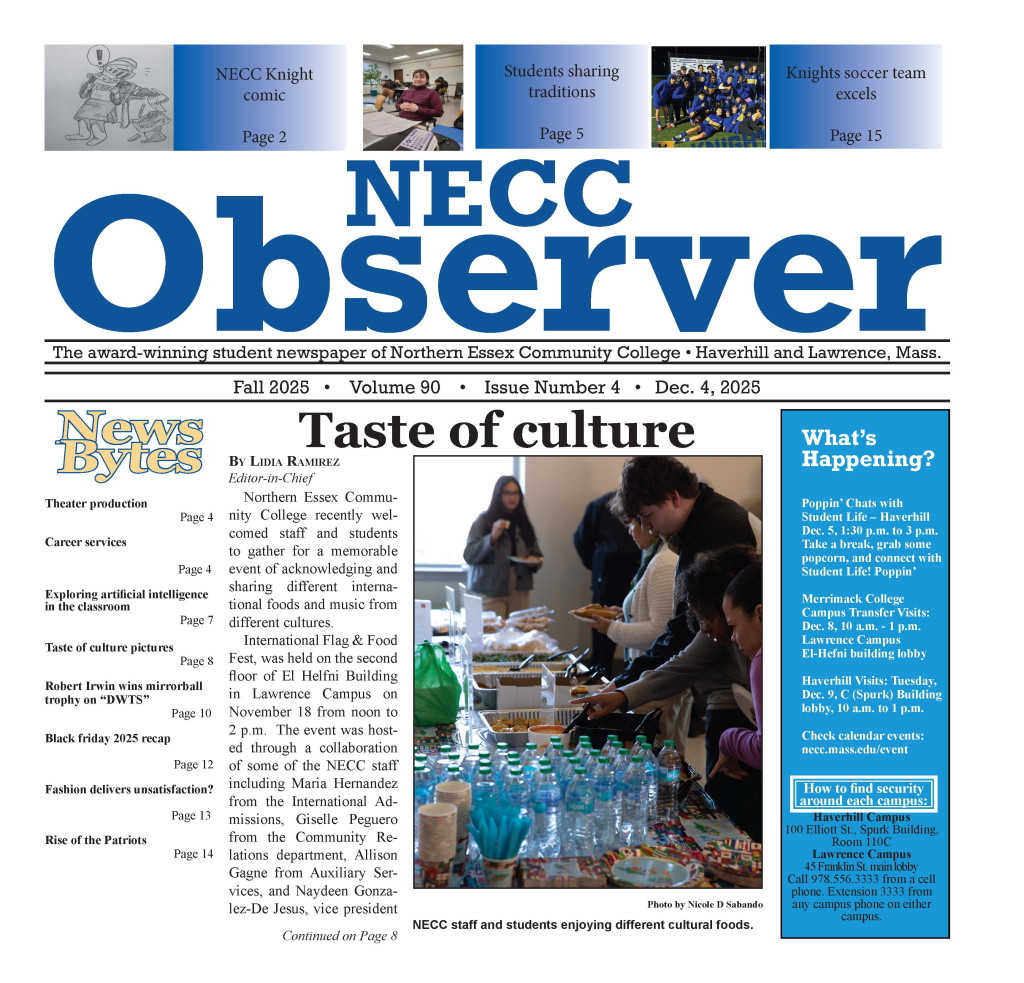By Carly Columbo
Correspondent
NECC students are finding themselves under crippling stress during these last few weeks in the semester, which leads them to cram. Cramming is defined by Wikipedia as “a widely used study skill performed in preparation for an examination or assessment. Most common among college-aged students, cramming is used as a means of memorizing large amounts of information in a short amount of time.”
Between finals and end of the term assignments, students have to scramble to finish strong.
“My stress levels tend to go higher around this time of school year,” says NECC student Gabriela Hernandez.
Many students are spending these weeks cramming late at night, drinking more caffeinated beverages, consuming more sugary snacks and doing whatever they can to stay awake to study.
“At the same time as finals I have to register for classes and apply to schools to transfer too,” says NECC student Tracy Mukami.
“In a typical day I’m piled with homework, studying for finals, doing a final project and looking at or compiling stuff for another college and trying to apply there.”
Luis Mendoza, an NECC student, said “Everything’s so hectic I hardly remember what sleep is anymore.”
The last few weeks before finals can take a toll on a student’s mental health. More students are trying to “cram” all the material in one night or a selection of nights.
Practices associated with cramming — such as losing sleep and consuming more sugary snacks — can not only hurt your mental and physical health, but also make you less able to retain information.
Studying for a couple hours each night with breaks in between is the smartest way to go about working with a lot of material. It is also important to continue practicing self-care, even when more time is needed to devote to school. NECC student Gabriela Hernandez mentioned her study tips for staying focused and on top of assignments towards the end of the semester.
“I found that over-studying can actually make it more difficult to retain information and learn material. So I try taking breaks in between studying. I usually study 30-40 minutes and then take a 10 minute break. I also try to dedicate the weekdays studying and during the weekends forget about school so I can relax mentally.”
It is also important to get plenty of rest. Students should be getting full nights of sleep to keep focused. It is also effective to stay hydrated and eat healthy to avoid long term stress.
Eating sugary foods can interrupt concentration and in the long-term add to stress. Christine Chung, UW-Madison student and UHS communications specialist, listed quick ways to help reduce stress short-term on the university’s health services website. such as watching a funny YouTube video and sharing it with a friend. There are also coping skills such as doing stretches at your desk, going for a short. brisk walk and even practicing breathing exercises, Chung wrote.
It is important not to let this time get the best of us. Cramming and staying up studying for long hours hurts our health and ruins our ability to retain important information.

